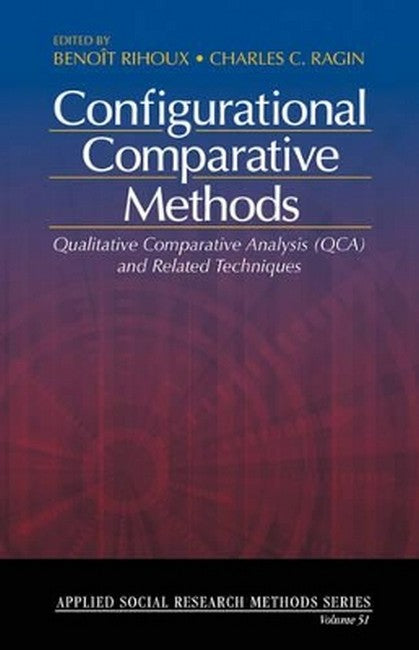Charles C. Ragin spent most of his youth in Texas and the southeastern United States. He attended the University of Texas at Austin as an undergraduate and received his BA degree in 1972 at the age of 19. That same year he began graduate work in sociology at the University of North Carolina at Chapel Hill and received his PhD in 1975. From 1975 until 2001, he lived in the Midwest, teaching first at Indiana University and then at Northwestern University. He headed west in 2001, where he spent just over a decade at University of Arizona-Tucson. In 2012, he joined the faculty at the University of California-Irvine, where he is currently the Chancellor's Professor of Sociology. He is best known for developing a methodological alternative to conventional research methods, using formal set-theoretic techniques for comparative research. His many publications address broad issues in politics and society, with topics ranging from the causes of ethnic political mobilization to the shaping of the welfare state in advanced capitalist countries. He has written several books including Intersectional Inequality: Race, Class, Test Scores and Poverty (with Peer Fiss, 2017). Redesigning Social Inquiry: Fuzzy Sets and Beyond (2008) Fuzzy-Set Social Science (2000). His book The Comparative Method: Moving Beyond Qualitative and Quantitative Strategies (1987) won the 1989 Stein Rokkan Prize of the International Social Science Council of UNESCO. In 2014 he received the Paul F. Lazarsfeld Award of the American Sociological Association. He is married to Mary Driscoll, and they have two sons, Andrew and Daniel.
Request Academic Copy
Please copy the ISBN for submitting review copy form
Description
INTRODUCTION - Benoit Rihoux and Charles Ragin 1. Qualitative Comparative Analysis (QCA) as an Approach - Dirk Berg-Schlosser, Gisele De Meur, Benoit Rihoux & Charles Ragin 2. Comparative Research Design: Case and Variable Selection - Dirk Berg-Schlosser & Gisele De Meur 3. Crisp-Set Qualitative Comparative Analysis (CSQCA) - Benoit Rihoux & Gisele De Meur 4. Multi-Value QCA (MVQCA) - Lasse Cronqvist & Dirk Berg-Schlosser 5. Qualitative Comparative Analysis Using Fuzzy Sets (FSQCA) - Charles C. Ragin 6. A Commented Review of Applications - Sakura Yamasaki & Benoit Rihoux 7. Addressing the Critiques of QCA - Gisele De Meur, Benoit Rihoux & Sakura Yamasaki 8. Conclusions - The Way(s) Ahead - Benoit Rihoux, Charles Ragin and Sakura Yamasaki FURTHER RESOURCES FOR CONFIGURATIONAL COMPARATIVE METHODS - Damien Bol and Sakura Yamasaki GLOSSARY - Sakura Yamasaki, Benoit Rihoux, Gisele De Meur and Charles C. Ragin THEMATIC AND AUTHOR INDEX ABOUT THE AUTHORS A Commented Review of Applications - Sakura Yamasaki, Benoit Rihoux Addressing the Critiques of QCA - Gisele De Meur, Benoit Rihoux, Sakura Yamasaki Comparative Research Design: Case and Variable Selection - Dirk Berg-Schlosser, Gisele De Meur Conclusions - The Way(s) Ahead - Benoit Rihoux, Charles Ragin, Sakura Yamasaki, Damien Bol Crisp-Set Qualitative Comparative Analysis - Benoit Rihoux, Gisele De Meur Multi-Value QCA (mvQCA) - Lasse Cronqvist, Dirk Berg-Schlosser Qualitative Comparative Analysis (QCA) as an Approach - Dirk Berg-Schlosser, Gisele De Meur, Benoit Rihoux, Charles Ragin
"This is a readable and useful book . . . an extended essay on one particular method, which is easy to understand, easy to apply, and generally useful. The method itself is implemented in a computer technique. . . . This method will systematize the analysis and produce an elegant statement of the combination of conditions which lead to a divided working class--provided there are no contradictions in the data. Where there are contradictions, Ragin's method will identify these combinations of conditions that lead to an ambiguous result."--William Miller, "Study of Public Policy

